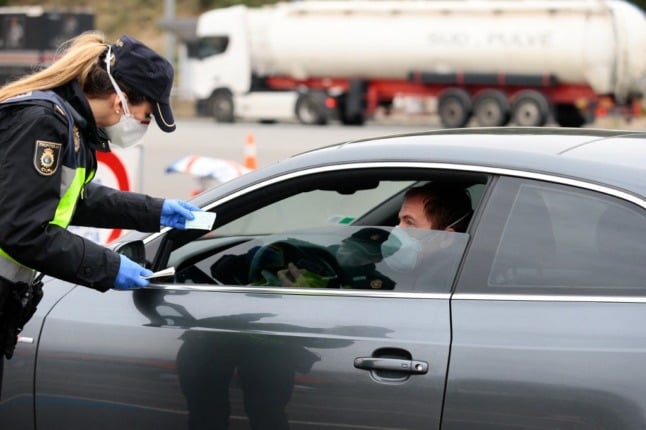“If you registered your details to exchange your UK driving licence for a Spanish licence before the end of last year, the deadline of June 30th 2021 has been extended until December 31st 2021, to allow you more time to complete your licence exchange” wrote the British Embassy in a Facebook post on Thursday May 28th.
“If you have attempted to complete the exchange of your licence since January 1st but your application was rejected due to your TIE being dated to 2021, the DGT office will get in touch with you directly to arrange for the completion of the exchange. If this is your situation, and you do not hear anything after a few weeks, you should request an appointment with the DGT. “
This is good news overall, especially given that processing delays in Spanish residency applications meant many British drivers in Spain faced missing the deadline for exchanging their UK driving licences for Spanish ones by June 30th 2021, and would consequently have to sit their exam again.
READ MORE: How residency hold-ups could mean many Brits in Spain need to sit their driving test again
“The DGT has also confirmed that both the green residence document and the TIE are valid proof of residence when completing the exchange,” the British Embassy added.
“You can see the Spanish government’s bilingual nota aclaratoria that states the ongoing validity of the green residency certificate here.
However, “the current date for recognition of UK licences for driving in Spain for those who are resident in Spain remains 30th June 2021”, the UK Embassy stressed.
“This means that we don’t know yet whether British licence holders will be able to drive in Spain from July onwards,” Anne Hernández, head of Brexpats in Spain, told The Local.
“I worry people will interpret this extension of the period in which to process the licence exchange as an extension of the validity of their UK licences, when so far it is not that.”
“This applies whether you registered before December 30th 2020 or have not yet started the process to exchange your UK licence for a Spanish licence,” British diplomatic sources clarified.
“What happens if these people don’t get to exchange their licence before July or August? Can they continue driving on the road?” Hernández asked.
“What happens if they get into an accident? Will they still be covered by insurance?
“If they get stopped by police, will the officers have a list of Brits who pre-registered before December 30th 2020 but haven’t been able to process the exchange? I don’t think so.
“The extension is a solution for those who haven’t been able to process their licence exchange, either because they’ve not received their residency approval (carta de resolución) firstly or haven’t been able to get an appointment.
“But my concern for them is what happens if they drive in Spain after June 30th 2021.”
In the meantime, the UK continues to discuss arrangements for the future exchange of UK driving licences without the need for Brits to have to sit a Spanish driving test, negotiations which have been ongoing since 2020.
READ MORE:



 Please whitelist us to continue reading.
Please whitelist us to continue reading.
Member comments